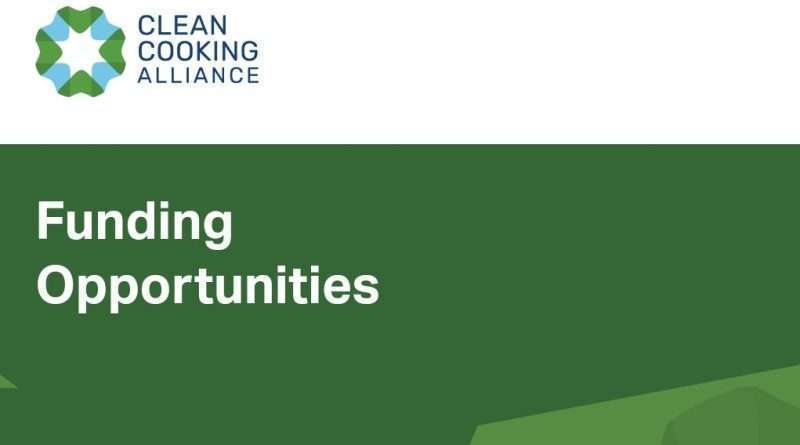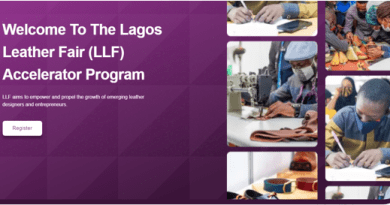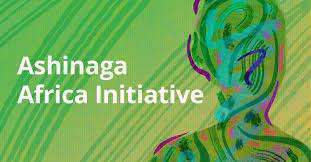Call for Proposals: Regulatory Guidelines for the Use of Carbon Credits as Collateral
The Clean Cooking Alliance, established in 2010, is committed to making clean cooking accessible globally. It works towards empowering consumers, improving health, and protecting the environment. The CCA aims for universal clean cooking access by 2030, in line with the Sustainable Development Goals. The Catalytic Finance Accelerator, a crucial initiative of CCA, targets mobilizing significant investment to bridge the current funding gap in the clean cooking sector.
The Catalytic Finance Accelerator
CCA’s Clean Cooking Systems Strategy highlighted that at least US $10 billion per year is required to achieve universal access to clean cooking, yet the current level of funding lags far behind at about $130 million annually. In response, CCA has established the Catalytic Finance Accelerator with the aim of aim of mobilizing at least $100 million in new commitments from banks and investors by 2026—and $500 million by 2030.
The Catalytic Finance Accelerator’s strategy is executed through four connected work-pillars that seek to facilitate:
- Better market norms and regulation to level the playing field, increase market integrity, and improve certainty to investors.
- Better information and efficient market infrastructure to reduce the time, cost, and effort in making investment decisions.
- Responsive adjacent markets to stimulate an investment response from financial, capital, electricity, and other adjacent markets.
- Capable clean cooking companies and project developers to prime these for investment.
Clean Cooking and Carbon Finance
With an estimated $25 billion of carbon finance flowing to clean cooking over the next 25 years, carbon markets are powerful means to rapidly close the financing gap. By significantly driving down costs to customers and enabling companies to grow faster, carbon revenue is accelerating the journey of clean cooking companies becoming bankable for traditional SME lending and investment products. The pace of this journey is however dependent on capital flows to clean cooking carbon projects that are largely financed by private investment from carbon project developers with deep pockets, project investors, and intermediaries.
Role of the Banking Sector
The domestic banking sector, together with international lenders, have a unique role in bridging the liquidity-gap throughout the lifecycle of clean cooking carbon projects with lending securitized against early-stage investment capital and carbon offtake contracts and purchase agreements. The additional liquidity can help existing projects to scale faster and enable current investors to partially liquidate their positions and reinvest in new projects.
Central banks currently view climate change primarily through a risk mitigation lens, focusing on protecting bank assets from the impacts of climate change. This perspective overlooks the significant opportunities presented by the evolving carbon markets, including both voluntary and compliance sectors. There is a lack of specific guidelines or regulations that enable banks to leverage carbon contracts as collateral. This gap hinders the financing and pre-financing of carbon reduction projects, thereby limiting the proactive role banks could play in supporting climate-positive initiatives. The need arises for developing and implementing regulatory frameworks that not only safeguard against climate-related risks but also empower financial institutions to actively participate in and benefit from the growth of carbon markets.
The Financing Partnership Platform, an initiative of the Catalytic Finance Accelerator together with the African Guarantee Fund and the UN Capital Development Fund, seeks to support to banking sector to allocate significant capital to clean cooking carbon projects as part of their sustainability and climate action commitments; offer products and terms aligned with the needs of clean cooking carbon projects; and receive support from enabling regulations, concessional capital, and market instruments that incentivize and de-risk lending to clean cooking carbon projects.
The Catalytic Finance Accelerator is seeking applications from qualified consultants to conduct a scoping study on the potential of supporting central banks to revise their collateral regulations to include carbon credits and to design a roadmap and interventions, including but not limited to for example a regulatory sandbox, that can develop, test, and adapt interim guidelines for banks and financial institutions.
Guidelines from central authorities or regulatory bodies endorsing carbon contracts as collateral can play a crucial role in signalling to banks the viability and safety of this practice, encouraging them to engage more actively in financing climate-positive projects. This is because guidelines can:
- Provide a structured framework for assessing and managing carbon related risks. By including carbon contracts as acceptable collateral, these guidelines reassure banks that the risks associated with these assets have been evaluated and deemed manageable under certain conditions.
- Lend legitimacy to newer forms of collateral, like carbon contracts. Banks may be hesitant to accept non-traditional collateral due to uncertainty about its legal standing or market value. Clear guidelines remove this uncertainty, giving banks confidence to proceed.
- Help in standardizing the treatment of carbon contracts across the banking sector. This standardization ensures that all banks are on a level playing field and understand how to value and manage these contracts as collateral.
- Stimulate the development of the carbon market by encouraging more participants to engage in carbon trading, increasing liquidity and market depth.
- Spur innovation and investment in carbon reduction projects. Knowing that carbon contracts are recognized as collateral, project developers and investors might be more willing to engage in such projects, assured of easier access to finance.
Objective of the Assignment:
This RFP seeks proposals to explore the feasibility and design of regulatory guidelines that would enable the use of carbon credits as collateral in the banking sector. This initiative aims to leverage the potential of the carbon market to support clean cooking projects, fostering a more robust investment landscape.
Scope of Work:
- Literature Review: Analyze existing literature on central bank collateral policies, carbon credits, and their integration as collateral. Focus on understanding the current regulatory environment, the market dynamics of carbon credits, and precedents for non-traditional assets as collateral.
- Focus countries: Kenya and two additional high prospect countries.
- Stakeholder Analysis: Conduct comprehensive research to understand the perspectives of central banks, financial institutions, environmental groups, and companies in the carbon credit market. Methods may include interviews, surveys, or focus groups.
- Risk Assessment: Evaluate risks associated with carbon credits as collateral, focusing on factors affecting their volatility like market demand, regulatory changes, and environmental variables.
- Regulatory Framework Analysis: Examine current regulatory frameworks to identify limitations and possibilities for including carbon credits as collateral, and the appropriate risk-weighting of carbon-credit assets to incentivise bank lending to carbon projects.
- Criteria Development: Formulate specific criteria or limitations for carbon credits to be acceptable as collateral, considering risk assessments and regulatory frameworks.
- Intervention design: Propose interventions, including but not limited to for example a regulatory sandbox, to develop and test guidelines for using carbon credits as collateral. Include specific criteria, risk assessments, and mechanisms for guideline adaptation.
- Consultation and Feedback: Engage with key stakeholders for input on the draft policy, ensuring its practicality and acceptability.
- Final Report Preparation: Compile findings, analyses, and feedback into a comprehensive report with clear recommendations and an implementation roadmap.
- Communication Material Development: Create diverse communication tools (presentation, report summary, blog, talking points) for advocacy with policymakers, financial institutions, and environmental groups.
Deliverables:
- Deliverable 1: Inception report with literature review, research framework, methodology, quantitative data sources, criteria for two addition country selection besides Kenya, interview list, and work-plan.
- Deliverable 2: Assessment report covering stakeholder analysis, risk assessment, and regulatory framework analysis.
- Deliverable 3: Design of the regulatory sandbox, including criteria development and stakeholder feedback.
- Deliverable 4: Final comprehensive report, accompanied by targeted communication materials.
Project Period of Performance
This assignment will be performed between April 2024 – July 2024. Interest and ability in continuing providing services after the Assignment should be elaborated on further in the application.
Eligibility and Technical Requirements:
This assignment is open to a firm or a consortium of individual consultants with firm in lead. The consultants should have a strong background in financial regulatory policies, environmental finance, or a related field. It must demonstrate a deep understanding of carbon markets, central banking policies, and the clean cooking sector.
1. Financial and Regulatory Analysis:
- Demonstrated experience in analyzing and interpreting financial regulations, particularly those relating to banking and non-traditional assets.
- Proven ability to assess and understand central bank collateral policies.
2. Environmental and Carbon Market Knowledge:
- Expertise in carbon markets, including voluntary and compliance sectors.
- Familiarity with carbon credit valuation, trading, and risk factors.
3. Research Capabilities:
- Strong qualitative and quantitative research skills, including literature reviews, stakeholder analysis, and surveys.
- Capacity to perform comprehensive risk assessments and market analyses.
4. Policy Development:
- Experience in developing policy recommendations, regulatory frameworks, or guidelines, preferably related to financial or environmental sectors.
5. Personnel:
- Multidisciplinary team with expertise in banking and banking regulation, environmental policy, research, and stakeholder engagement. Lead consultants with at least 10 years of relevant experience.
6. Stakeholder Engagement:
- Proven track record of effective stakeholder consultation and engagement, including conducting interviews and focus groups.
7. Collaborative Approach and Feedback Integration:
- Ability to work collaboratively with CCA and other stakeholders, adapting to feedback and changing requirements.
- Demonstrated ability in incorporating stakeholder feedback into policy and framework development.
8. Communication and Reporting:
- Strong written and oral communication abilities, especially in preparing reports, presentations, and communication materials for diverse audiences.
- Experience in preparing comprehensive, clear, and actionable reports.
Timeline:
| Date | Deliverable |
| 03/17/2024 | Proposals due |
| 03/25/2024 | Proposal review and scoring |
| 04/01/2024 | Consultant(s) selected and notified via email |
| 04/29/2024 | Kick-off meeting with selected Consultant(s) |
Budget:
A detailed budget in US Dollars must be submitted with the proposal. Budget should include both pre-tax and net of tax values. The budget should include direct costs (Personnel, Fringe Benefits, Travel, Sub-Agreements, Equipment, Supplies, etc.), as well as indirect costs (overhead). For indirect costs, please indicate a list of expenses covered by the indirect rate. For all direct cost, please include assumptions that were made to arrive at line-item costs (e.g. 2 trips @ $1,500/trip = $3,000 or 20 staff hours @ $40/hour = $800).
If a bid has a mathematical discrepancy, CCA may correct the discrepancy and notify the Consultant of the adjustment. In such circumstances, the Consultant may choose to withdraw their bid.
The budget should not exceed US $50,000.
Evaluation Process:
The Clean Cooking Alliance will review all written proposals and may request a phone or in-person interview and/or updated submission to address questions or provide clarification. CCA will use the following criteria in its evaluation.
| Evaluation criteria | Weight | Score (1-5) |
| Approach: e.g the analytical framework and methodology | 30% | |
| Subject matter expertise: e.g demonstrated experience with similar projects | 20% | |
| Project personnel: proposed team | 40% | |
| Value: e.g the proposed pricing is within budget | 5% | |
| Value for money: the proposed pricing demonstrates a competitive price and good value for the money | 5% |
Intent and Disclaimer:
This RFP is made with the intent to identify a Consultant to deliver results as described in this RFP. UNF/the Clean Cooking Alliance will rely on the Consultant’s representations to be truthful and as described. The Clean Cooking Alliance assumes it can be confident in the Consultant’s ability to deliver the product(s) and/or service(s) proposed in response to this RFP.
If the Clean Cooking Alliance amends the RFP, copies of any such amendments will be sent to all respondents to the proposal.
Proposal Guidelines and Requirements:
- This RFP is open to multiple partners and is a competitive process.
- Proposals received after 5pm ET on March 17, 2024, will not be considered.
- The price provided should be in US dollars, and should contain both pre-tax and net of tax values. If the process excludes certain fees or charges, the applicant must provide a detailed list of excluded fees with a complete explanation of the nature of those fees.
- CCA prefers a single point of contact who manages deliverables. If the execution of work to be performed by the Consultant requires the hiring of sub-contractors, the Consultant must clearly state this in the proposal. Sub-contractors must be identified and the work they will perform must be defined. Subcontractors are subject to vetting and approval of UNF/CCA
- CCA will not refuse a proposal based upon the use of subcontractors; however, we retain the right to refuse the sub-contractors you have selected.
- Provisions of this RFP and the contents of the successful responses are considered available for inclusion in final contractual obligations.
Format for Proposals:
Proposals must include applicant signature as well as a signed declaration form. Proposals must include the full legal name of applicant, as well as legal formation and ownership structure (e.g. incorporation certification, tax status and ID, etc.).
Contracting and Compliance:
CCA will negotiate contract terms upon selection. A copy of the contract terms and conditions will be provided upon selection. All contracts are subject to review by the UN Foundation’s Business Services and Budget Reporting team. The project will start upon the complete execution of the contract. The contract will outline terms and conditions, scope, budget, and applicable flow down terms. Selected recipient(s) must comply with CCA, United Nations Foundation, and funder compliance requirements. The selected recipient(s) must also undergo detailed legal, financial, and commercial due diligence.
Release:
The Consultant understands that the Clean Cooking Alliance has chosen to solicit an RFP for consulting services, and that the Consultant’s response does not guarantee that the Clean Cooking Alliance will enter into a new contract with the Consultant or continue any current contract(s) with the Consultant.
The Consultant agrees that Clean Cooking Alliance may, at its sole discretion:
- Amend or cancel the RFP, in whole or in part, at any time.
- Extend the deadline for submitting responses.
- Determine whether a response does or does not substantially comply with the requirements of the RFP.
- Waive any minor irregularity, informality or nonconformance with the provisions or procedures of the RFP.
- Negotiate with all Consultants UNF deems acceptable.
- Issue multiple awards.
- Photocopy the responses for evaluation/review.
This RFP is not an offer to contract. The Clean Cooking Alliance assumes no responsibility for Consultant’s cost to respond to this RFP. All responses become the property of the Clean Cooking Alliance.
The Consultant, by submitting a response to this RFP, waives all right to protest or seek any legal remedies whatsoever regarding any aspect of this RFP.
The Consultant represents that it has responded to the RFP with complete honesty and accuracy. If facts provided in the Consultant’s response change, the Consultant agrees to supplement its response in writing with any deletions, additions, or changes within ten (10) days of the changes. The Consultant will do this, as necessary, throughout the selection process.
The Consultant understands it may receive proprietary and confidential information from the Clean Cooking Alliance during the RFP process (“Confidential Information”). The Consultant and CCA agree to not use Confidential Information for any purpose other than the Consultant’s participation in the RFP process, and to not reveal Confidential Information directly or indirectly to any other person, entity, or organization without the prior written consent of the other party. The Consultant and CCA further agree to exercise all reasonable precautions to maintain the proprietary and confidential nature of Confidential Information where it can best demonstrate its value and capacity to delivery ecosystem-wide, meaningful value.
Grounds for Exclusion:
Material misrepresentations, including omissions, may disqualify the Consultant from a contract award.
Submissions will be rejected in the Clean Cooking Alliance’s sole discretion if it finds that the Consultant has engaged in any illegal or corrupt practices in connection with the award.
The Consultant will be excluded from participation for the reasons below. By submitting a proposal in response to the RFP, the Consultant confirms that none of the below circumstances apply:
- The Consultant is bankrupt or being wound up, is having their affairs administered by the courts, has entered into an arrangement with creditors, has suspended business activities, is subject of proceedings concerning those matters, or is in any analogous situation arising from a similar procedure provided for in national legislation or regulations.
- The Consultant or persons having powers of representation, decision-making or control over them have been convicted of an offence concerning their professional conduct by a final judgment.
- The Consultant has been found guilty of grave professional misconduct; proven by any means which CCA can justify.
- The Consultant has not fulfilled obligations relating to the payment of social security contributions or taxes in accordance with the legal provisions of the country in which they are established, or within the United States of America, or those of the country where the contract is to be performed.
- The Consultant or persons having powers of representation, decision-making or control over them have been convicted for fraud, corruption, involvement in a criminal organization or money laundering by a final judgment.
- The Consultant makes use of child labor or forced labor and/or practice discrimination, and/or do not respect the right to freedom of association and the right to organize and engage in collective bargaining pursuant to the core conventions of the International Labour Organization (ILO).
Principal Point of Contact:
Feisal Hussain and Catherine Tarayia are the primary points of contact for this assignment. Please reach out to [email protected] with any questions.
Submission Details:
Please submit any questions and/or proposal materials related to the Request for Proposals to [email protected] with the subject line “Proposals for Regulatory guidelines for the use of carbon credits as collateral”.
The deadline for submission is March 17, 2022, at 5pm ET.




